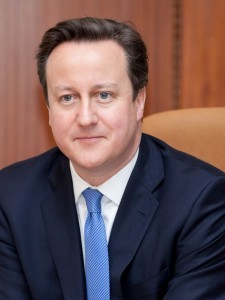Below is the text of the speech made by David Cameron, the Prime Minister, at the G20 Summit in Turkey on 16 November 2015.
Good morning and welcome. This has been an important summit.
Five years ago, at the first G20 I attended as Prime Minister, the focus was on economic security.
Today, the focus is national security.
How we can work together.
…to tackle the threat from terrorism…
…to bring an end to the conflict in Syria…
…and to deal with the long term threats to our security such as climate change.
Let me say a few words on each.
Terrorism
First, terrorism.
The horrific attacks in Paris on Friday night…
…so soon after the Russian airline disaster, and following on from the Ankara bombings and the attacks in Tunisia and the attacks in Lebanon.
…underline the threat we all face.
A threat to our values and our way of life.
…and a threat that we must defeat, together.
Here at this summit, we have agreed to take further important steps.
…to cut off the financing that terrorists rely upon…
…to counter the extremist ideology and the terrorists’ propaganda.
…and to better protect ourselves from the threat of foreign fighters, by sharing intelligence and stopping them from travelling.
Importantly, for the first time ever, we have also agreed to work to strengthen global aviation security together.
Almost 80% of all air travel worldwide is undertaken by citizens from G20 countries – so it is in our interest to take action to do all we can to keep it safe.
We need robust and consistent standards of aviation security in every airport in the world.
And we must provide technical and financial assistance to countries with particularly vulnerable locations.
The UK will at least double its spending on aviation security this Parliament to ensure we can help tighten security worldwide.
Syria
On Syria, it is vital that we.
…do more to help those in desperate humanitarian need.
…that we find a political solution to the conflict.
…and that we degrade and destroy ISIL.
Britain is already the second largest contributor to the humanitarian crisis – providing £1.1 billion in vital life-saving assistance.
Last week we committed a further £275 million to be spent here in Turkey, a country hosting over 2 million refugees.
Today I can announce that, together with the leaders of Germany, Norway, Kuwait and the United Nations.
…I will co-host a Syria donors conference in London early next year to raise significant new funding.
But none of this is a substitute for the most urgent need of all – to find a political solution that brings peace to Syria and enables the millions of refugees to return home.
This morning I held talks with President Putin and I urged him to work with the international community to support a transition in Syria, away from President Assad and his ruthless brutality.
We need to find a way to work together to bring this fighting to an end and to focus on the aim we all share: destroying the evil death cult that is ISIL.
That means continuing our efforts to degrade and destroy ISIL in Syria and Iraq.
Together, coalition forces have damaged over 13,500 targets.
We’ve helped local forces to regain 30% of ISIL territory in Iraq, retake Kobane and push ISIL back towards Raqqa.
On Friday, Kurdish forces retook Sinjar.
The UK is playing its part – training local forces, striking targets in Iraq and providing vital intelligence support.
And seamless co-operation between the UK and the US is delivering results – as the strike against Emwazi showed last week.
Global challenges
Finally, we discussed longer term threats to global stability.
In just 2 weeks’ time, we will gather in Paris to agree a global climate change deal.
This time – unlike Kyoto – it will include the USA and China.
Here at this summit, I urged leaders to keep up the ambition of limiting global warming by 2050 to less than 2 degrees above pre-industrial levels.
Every country needs to put forward its own programme for reducing carbon emissions.
And as G20 countries, we must also do more to provide the financing that is needed to help poorer countries around the world switch to greener forms of energy and adapt to the effects of climate change.
Finally, we also agreed that we should do more to wipe out the corruption that chokes off development and to deal with anti-microbial resistance.
If antibiotics stop working properly millions will die.
We need to build on our successes this year – the new global goals for development and tackling Ebola where Sierra Leone was able to declare last week that it is Ebola-free – and focus on these new challenges.
Thank you.
